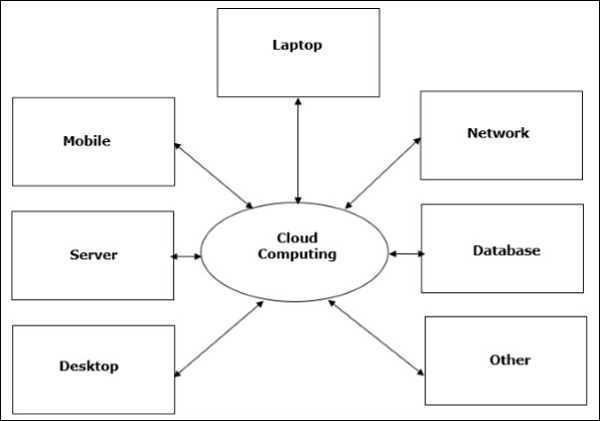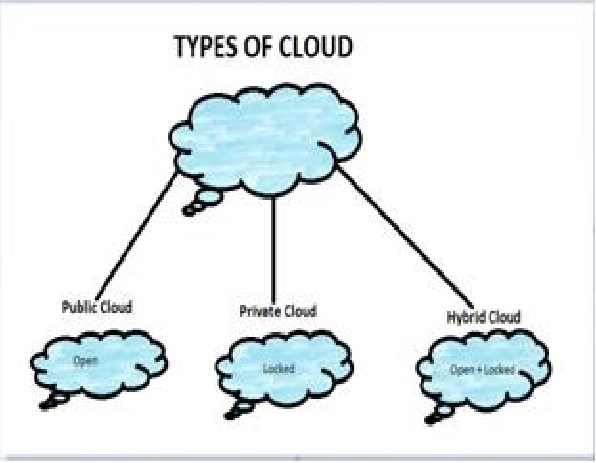Microsoft Azure Fundamentals And Its Applications
The popular trend in today's technology-driven world is ‘Cloud Computing’. Cloud computing can be referred to as the storing and accessing of data over the internet rather than your computer's hard drive. This means you don't access the data from either your computer's hard drive or over a dedicated computer network (home or office network). Cloud computing means data is stored at a remote place and is synchronized with other web information.
One prominent example of cloud computing is Office 365 which allows users to store, access, edit their MS Office documents online (in the browser) without installing the actual program on their device.
 The Architecture of Cloud Computing
The Architecture of Cloud Computing- Front-end device
- Back-end platform
- Cloud-based delivery
- Network
- Public
- Private
- Hybrid
 Benefits of Cloud
Benefits of Cloud
The architecture of cloud computing comprises of the following components −
Front-end Devices − These are basically the devices that are used by clients to access the data or program using the browser or special applications.
Back-end Platform − There are various computers, servers, virtual machines, etc. that combine to become a back-end platform.
The storage options on the cloud are in 3 forms −
Public Cloud − A service provider makes the clouds available to the general public which is termed as a public cloud. These clouds are accessed through the internet by users. These are open to public and their infrastructure is owned and operated by service providers as in the case of Google and Microsoft.
Private Cloud − These clouds are dedicated to a particular organization. That particular organization can use the cloud for storing the company's data, hosting business application, etc. The data stored on private cloud can't be shared with other organizations. The cloud is managed either by the organization itself or by the third party.
Hybrid Cloud − When two or more clouds are bound together to offer the advantage of both public and private clouds, they are termed as Hybrid Cloud. Organizations can use private clouds for sensitive application, while public clouds for non-sensitive applications. The hybrid clouds provide flexible, scalable and cost-effective solutions to the organizations.
There are many benefits of clouds. Some of them are listed below.
- Cloud service offers scalability. Allocation and de-allocation of resources is dynamical as per demand.
- It saves on cost by reducing capital infrastructure.
- It allows the user to access the application independent of their location and hardware configuration.
- It simplifies the network and lets the client access the application without buying a license for an individual machine.
- Storing data on clouds is more reliable as it is not lost easily
Comments
Post a Comment